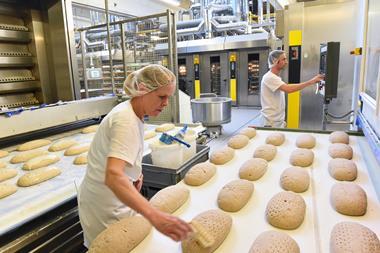A tax on sugar is not the answer to tackling the obesity crisis, the director general of the Food and Drink Federation (FDF) has reiterated.
Ian Wright made the comments during the opening conference debate at Food Matters Live, a three-day event which runs until 19 November and explores the relationship between food and drink, health and wellbeing.
The FDF director argued that imposing a levy, in the same way tobacco is taxed, would not work. “You cannot compare tobacco with sugar. You make a conscious choice to smoke a cigarette and sugar is in almost everything,” he told delegates.
Instead, a change in human behaviour would require a “massively complex and multi-layered solution”’, involving dietitians, behavioural specialists and industry, he said.
Last month bakery bodies urged the Government to “come clean” on its intentions for sugar and warned that a tax might not have the desired effect in altering the behaviour of consumers.
Their comments came on the back of the delayed Public Health England review ‘Sugar Reduction: the Evidence for Action’, which recommended a sugar tax and reductions in the sugar content and portion size of everyday food and drink to address concerns about the nation’s sugar consumption.
Holistic
In addition, Julie Manning, chief executive of social enterprise think tank 2020health, insisted a more holistic approach was needed to tackle the “complex issue” and called for “highest level Cobra style meetings”’ to show a cross-departmental, serious commitment to tackling obesity, which is currently heavily focused on diet.
The long-awaited Childhood Obesity Strategy guidelines are due to be published in the New Year.
Speaking at Food Matters Live, Gina Radford the Department of Health’s deputy chief medical officer, said the UK had one of the highest obesity rates in the world, with about 70,000 deaths from heart disease, cancer and diabetes attributed to people being overweight.
“Childhood obesity has increased three times over the last five generations, with our younger generations more likely to be obese by age 10,” she said.
Fiona McCullough, honorary chair of the British Dietetic Association, said her members would be happy to support a sugar tax as ‘one strategy’ in tackling childhood obesity, but added that there needed to be a greater emphasis on physical activities too.



































No comments yet